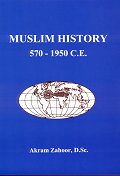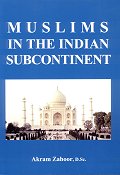ENGLISH TRANSLATIONS OF THE HOLY QUR'AN
An Annotated Bibliography
by
A.R. Kidwai

Before the fairly recent publication of the massive World Bibliography of The Translations of The Meanings of The Holy Qur'an (Istanbul, OIC Research Center, 1986), it was hard to even track down the material on the translations of the Holy Qur'an in various languages. Nonetheless, since the Bibliography is not annotated, the reader gets no idea about the translations make-up, his dogmatic presuppositions and his approach to the Qur'an, as well as the quality of the translation. The present annotated bibliography, taking into account only complete English translations to date, attempts to answer some of the above questions. In preparing the bibliography I received all possible help from the Islamic Foundation, Leicester (UK), which is thankfully acknowledged.

BY NON-MUSLIMS, QADIYANIS, 1917-70
1917
Ali, Muhammad, The Holy Qur'an: English Translation (Lahore 1917). At least 10 edns. The translation supplemented by exhaustive notes betrays the translator's Qadiyani beliefs. Grossly twists and misinterprets the Qur'anic verses related to the Promised Messiah and the Prophet Muhammad (pbuh) as the seal of prophethood. Swayed by pseudo-rationalism, Muhammad Ali denies the occurrence of some miracles such as the gushing forth of twelve springs as a result of the Prophet Moses' striking his staff (al-Baqarah II:60), angelhood of Harut and Marut (al-Baqarah II:102), Jinns listening to the Qur'an (al-Jinn LXXII:01) and the stoning of Abraha's army to death by the birds (al-Fil CV:3). The language used in his translation is not also up to the mark.

1920
Sarwar, Ghulam, Translations of the Holy Qur'an (Singapore, 1920). 8 edns. The introduction
constitutes a brilliant critique of the English translations of the Qur'an by Sale, Rodwell, Palmer and Muhammad Ali. Devoid of the Text and notes. Lavishes a gushing eulogy on both the translation and approach of Muhammad Ali. The only deflect Sarwar discovers in Muhammad Ali's translation is the 'very poor construction of a great many passages in the body of the translation' hence his new translation.

1955
Ali, Sher, The Holy Qur'an (Lahore, 1955). 13 edns. The official Qadyani translation of the Qur'an. Apart from retaining the unpardonable faults of misinterpretation and mistranslation found in Muhammad Ali's translation, Sher Ali interpolated more blatantly the Qadyani doctrines into his translation.

1960
Peer, Salahuddin, The Wonderful Koran (Aminabad, 1960). 2 edns. Another Qadyani translation
of the Qur'an.

1964
Nuri, Khadim Rahman, The Running Commentary of the Holy Qur'an with under- bracket comments (Shillong 1964) 1 edn. Sufistic leanings of the translator characterize this Qadyani translation of the Qur'an.

1969
Farid, Malik Gulam (ed.), The Holy Qur'an: English Translation and Commentary (Rabwah, 1969). 2 edns. The commentary is based on Mirza Bashiruddin Mahmud Ahmad's Urdu Translation of the Qur'an. Published under the auspices of Hadrat Mirza Nasir Ahmad, Third Successor of the Promised Messiah and Head of the Ahmadiyyah Movement in Islam'.

1970
Khan, Zafrullah, The Qur'an: Arabic Text and English Translation (London, 1970). 4 edns. A notable Qadyani translation. Marred by unaccountable liberties in that Zafrullah Khan, following the footsteps of other Qadyanis, does not recognize the Prophet Muhammad (pbuh) as the last Prophet.

BY OTHER NON-MUSLIMS, 1649-1956
1649
Ross, Alexander, The Alcoran of Mahomet translated out of Arabique into French, by the Sieur Du Ryer...And newly Englished, for the satisfaction of all that desire to look into the Turkish
vanities (London, 1649). 8 edns. The latest edition came out in 1856. A very crude specimen of the Orientalist-missionary approach to the Qur'an. In his 'Introductory Note to the Christian Reader' Ross specifies his purpose: 'I thought good to bring it to their colours, that so viewing
thine enemies in their full body thou must the better prepare to encounter...his Alcoran'. In the same rabidly anti-Islamic vein is the Appendix to the work entitled as 'A needful caveat or Admonition, for them who desire to know what use may be made of or if there be danger in reading the al-Coran'. As to the quality of the translation itself, Zwemer's remark is quite illuminating: 'He (Ross) was utterly unacquainted with Arabic, and not a thorough French scholar; therefore his translation is faulty in the extreme'. Zwemer, S.M., Muslim World, V, (1915), p.250.

1734
Sale, G., The Koran: Commonly called the Alkoran of Mohammed (London, 1734). At least 123 edns. The latest edition appeared in 1975. Contains an exhaustive Preliminary discourse on Sira and the Qur'an. In translating the Qur'an Sale's missionary intent is quite marked. For in the note to the reader he suggests the rules to be observed for 'the conversion of Mohammedans' (p. v); evaluates the Prophet thus: 'For how criminal soever Mohammed may have been in imposing a fake religion on mankind, the praises due to his real virtues ought not to be denied him' (p. vii), talks of different editions of the Qur'an which, for him, vary in contents (p. 45), points out the borrowings in the Qur'an, (pp. 49 and 50) and refers to the piecemeal revelation of the Qur'an as a 'contrivance' (p.50). Full of instances of omission and mistranslation. For example, Ar-Rahman nir Raheem, is simply rendered as 'Most Merciful'. The recurrent Qur'anic address, Ya aayuhan
nas is translated as 'O people of Mecca'. Renders as 'Substitute' and as 'Secret History'. Parts of some verses have been altogether omitted, as for example, in Ale-Imran III:98 is not translated.

1861
Rodwell, J.M., The Koran (London, 1861). 32 edns. Question the authenticity of the traditional
Sura order and invents a new so called chronological Sura order. In the Introduction he refers to the prophet as the crafty author of the Qur'an; indicates the Christian, Jewish, Zoroastrian and other sources of the Qur'an; advises missionary activists how to carry out their work and hold the prophet a victim of self-deception, a cataleptic subject from his early youth...liable to morbid and fantastic hallucinations (p.14). Suffers from a number of mistakes of mistranslation and misinterpretation. For example, (al-Mudathir LXXIV:39) is translated as 'they of God's right hand', (al-Kauthar CVIII:2) as 'Pray therefore to the Lord and slay the victims'. Explains the use of the word abd (al-Alaq XCVI:10) in the Qur'an thus: 'Since it was the slaves who had embraced Islam, the Qur'an uses this expression'.

1880
Palmer, E.H., The Koran (London 1880). 15 edns. A Cambridge scholar entrusted with the
preparation of a new translation of the Qur'an for Max Muller 'Sacred Books of the East Series'. Nykl notes no less than 70 instances of omissions and mistranslation in his translation. Nykl, A.R., 'Notes on E.M. Palmer's The Qur'an in the Journal of the American Oriental Society 56 (1936),
pp. 77-84.

1937
Bell, Richard, The Qur'an translated with a crucial rearrangement of Surahs (London 1937). 4
edns. His aim in translating the Qur'an is to 'understand the deliverances of Muhammad afresh' (p. v). Apart from describing the Prophet as the author of the Qur'an, Bell believes that the Qur'an in its written form was 'actually written by Muhammad himself' (p vi). Illustrates 'alteration, substitutions and derangements in the text'. For example, II:209 is a later addition, 206-208 are unconnected scraps and 210 is the original continuation of the verse No. 205. On each page he indicates his peculiar arrangement of verses.

1955
Arberry, A.J., The Koran Interpreted (London, 1955). 12 edns. Contains no explanatory notes or
background information about Suras. Not altogether free from omissions and mistranslations. For example al-Anfal VIII:59 is rendered as: 'And thou are not supposed that they who disbelieve have outstripped Me' whereas the correct translation would be: 'Let not those who disbelieve deem that they have escaped Me'. An-nabi-ul Ummi is mistranslated as 'the Prophet of the common folk'. Other instances of mistranslation are: Ale-Imran III:43; Nisaa IV:72, 147 and 157; Maida V:55; Araf VII:157; al-Sajdah XXXII:23; al-Anfal VIII:59 and Yunus X:88, etc.

1956
Dawood, N.J., The Koran (London, 1956). 11 edns. An Iraqi Jew. Speaks of the influence of Jewish and Christian teachings on the Prophet and condemning the traditional Sura order follows the chronological Sura order. Marred by serious mistakes of translation 'bani Adam" (al-Araf VII:31) is rendered as children of Allah [correct translation is 'children of Adam'], in Al-Baqarah II:191 'al fitnatu asyaddu minal qatl(i)' is mistranslated as 'idolatry is worse than carnage' [correct translation is 'oppression is worse than slaughter'].
Full Article in the E-book

Those who wish to understand the specific and broader meaning of the verses of the Qur'an, it is recommended that they should also read commentary on the subjects and verses of the Qur'an. The English readers will find either Yusuf Ali's or Maududi's commentaries a good source. Allama Yususf Ali presents the meaning Ayah (verse) by Ayah with detailed footnotes for relevant words in each verse and includes a detailed index of the topics mentioned in the Qur'an. Maulana Maududi's work covers commentary for each Surah (chapter) of the Holy Qur'an.
Pickthall writes in his foreward of 1930: "... The Qur'an cannot be translated. ...The book is here rendered almost literally and every effort has been made to choose befitting language. But the result is not the Glorious Qur'an, that inimitable symphony, the very sounds of which move men to tears and ecstasy. It is only an attempt to present the meaning of the Qur'an-and peradventure something of the charm in English. It can never take the place of the Qur'an in Arabic, nor is it meant to do so..."
"The Holy Qur'an," Text, Translation and Commentary by Abdullah Yusuf Ali, 1934. (Latest Publisher: Amana Publications, Beltsville, MD, USA; Title: "The Meaning of the Holy Qur'an," 1992). A pocket edition of Yusuf Ali's translation is also available in contemporary English.
"The Meaning of the Glorious Koran," An Explanatory Translation by Mohammed Marmaduke Pickthall, a Mentor Book Publication. (Also available as: "The Meaning of the Glorious Koran," by Marmaduke Pickthall, Dorset Press, N.Y. and several Islamic book publishers; Published by several publishers since 1930). Note: The Mentor publication (451 MJ1529 195) contains a few errors/omissions, e.g., in Surah 72: the last part of Verse 2 should read "we ascribe no partner unto our Lord", and Surah 68: Verse 22 should read "straight" road instead of "beaten" road. In case of any doubt, the reader is advised to check with a copy from an Islamic publisher and also check with an Islamic scholar for the meaning directly from the Arabic original.

Copyright © 1992 The Message International, an ICNA Publication.
Initially this article appeared in the Muslim World Book Review, London.
Copyright © 1998 notes in [...] and the web version by Dr. A. Zahoor. All Rights Reserved


E-Books on Islam and Muslims
http://cyberistan.org/islamic/quranetr.htm
![]()
![]()
![]()
![]()
![]()
![]()
![]()
![]()
![]()
![]()
![]()
![]()
![]()
![]()
![]()
![]()
![]()